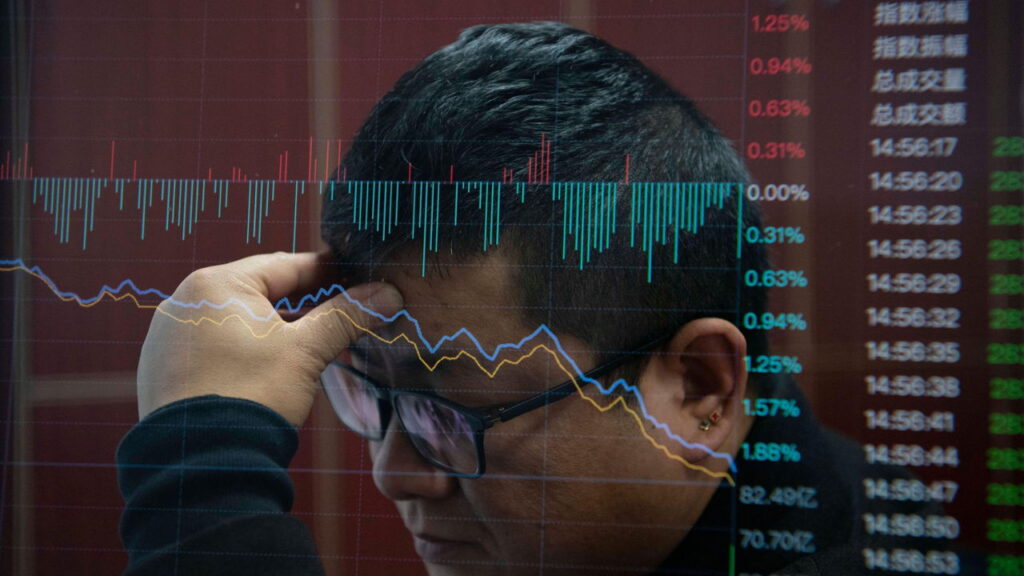As the Chinese financial landscape witnessed a significant downturn at the commencement of 2025, a rather humorous quip began to circulate amongst the investment community. The joke ran: “What is the most valuable asset in the market?” The resounding answer, accompanied by laughter, was “retail investors.” This jest highlights a peculiar reality of China’s stock markets, which are predominantly influenced by amateur traders. These individuals often engage in a cycle of buying at inflated prices and selling at depreciated values, a behavior that inadvertently supports the more seasoned professionals in the trading sphere, enabling them to survive in a turbulent environment.
In the background of this jest, a deeper observation about the behaviors of retail investors can be made. Despite the rampant losses occurring in the stock markets—losses that would normally discourage participation—retail investors appear perpetually willing to re-enter the fray. The analogy of these traders being akin to leeks is particularly illustrative; just as this type of vegetable can be repeatedly harvested yet continues to sprout anew, so too do retail investors seem resilient, returning to the market repeatedly despite the odds. This resilience is rooted in their emotional ties to the market, often driven by optimism, impulsivity, and a fervent hope that the tides will inevitably turn in their favor.
Furthermore, this phenomenon is not exclusive to China. Globally, retail investors have shown a tendency to flock to stock markets, drawn in by the allure of potential profits despite the inherent risks involved. However, the dynamics of China’s market are particularly unique, with retail investors constituting a significant majority of trading activity. Data indicates that during significant sell-offs, such as the one witnessed in early 2025, retail traders account for a formidable volume of transactions. This has led analysts to question the stability of the market and the sustainability of these trading behaviors.
The implications of this retail investment phenomenon extend beyond mere financial metrics; they can affect economic policy and regulatory frameworks. Policymakers in China have observed the behavior of these investors and are often compelled to implement measures aimed at bolstering confidence and stabilizing the markets. This has included initiatives like enhancing financial literacy among the public, providing guidance on investment strategies, and even creating protections that benefit novice traders. The authorities are acutely aware of the necessity to cultivate a more informed investor base to reduce volatility and prevent catastrophic market collapses driven by emotional trading decisions.
On a cultural level, the narrative around retail investing plays into certain societal attitudes towards wealth and success. Many retail investors perceive the stock market as a legitimate channel for wealth accumulation, influenced by both the success stories shared within their social circles and greater media coverage. The aspirational aspect of retail investing—a pursuit of what many consider the “Chinese Dream” of financial freedom—drives participation rates even amid significant market corrections. This strong cultural aspiration can lead to cyclical behavior, fostering an environment where fear of missing out (FOMO) compels investors to act, regardless of market conditions.
In conclusion, the interplay between retail investors and the broader Chinese stock market creates a complex ecosystem characterized by resilience, cyclicality, and emotional investment. As they navigate through market fluctuations, the contributions of these amateur traders influence market behaviors, shape economic policies, and reflect broader societal aspirations. The image of retail investors consistently returning to the market, regardless of their financial follies, serves as a compelling narrative of hope and tenacity within the realm of investments in China.









